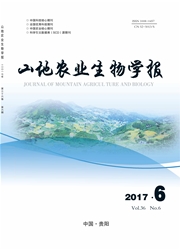

 中文摘要:
中文摘要:
水稻是世界上最主要的粮食作物之一,利用转基因技术可以改良水稻品种,现已获得了抗虫、抗病、抗逆及营养改良型等转基因水稻。虽然转基因水稻的安全研究报道并不多,但转基因水稻的食用安全性一直是争议的焦点,尤其是在转Bt抗虫基因水稻获得安全证书后。本文综合分析了转基因水稻食用安全性研究的国内外进展。安全性评价除了营养成分与抗营养因子的比较外,也需要开展动物饲喂试验。在饲喂试验中,转基因与非转基因处理存在一些差异,但大多数研究认为转基因水稻与传统非转基因亲本水稻的营养性和安全性是一样的;然而,也有少数研究结果显示转基因水稻有毒副作用,或会引起试验动物肠道茵群或相关生化指标的改变。目前动物试验的持续时间很少超过90天,食用安全性的风险可能短期不会显现,需要合理延长动物饲喂试验的持续时间。本综述旨在为转基因水稻的食用安全性研究和生物安全管理提供参考。
 英文摘要:
英文摘要:
Rice is one of the most important food crops in the world. Transgenic technology is currently used for the genetic improvement in rice. Up to date, many transgenic lines including insect resistance, disease resistance, stress tolerance and nutrition improvement etc have been obtained. Recently, there has been hot debates on the safety of the transgenic rice in China, especially transgenie lines with insect resistant gene from Bacillus thuringiensis (Bt) since relatively less scientific papers were published concerning the food safety. This paper reviewed current progress of the food safety assessment of transgenic rice. In addition to the com- parison of nutrition and anti-nutrition, animal feeding tests were also conducted to assess the food safety of transgenic rice. Although some differences between transgenic lines and wild type were observed in the feed- ing tests, most authors assumed that the differences were within natural range and the nutrition, and safety level of the transgenie rice were regarded as be similar to their parental non-transgenie counterparts. However, there were still a few evidences showing negative effect of transgenie flee. Several findings proved the alteration of intestinal flora and some biochemical indicators of the tested animals. Especially, toxic effect of the Bt rice had been documented, which should be further verified. Few feeding tests over 90 d had been earfled, therefore longer-term feeding experiment was suggested to be conducted. This review will be helpful for food safety assessment of transgenic rice, and may also provide evidences for biosafety management.
 同期刊论文项目
同期刊论文项目
 同项目期刊论文
同项目期刊论文
 期刊信息
期刊信息
